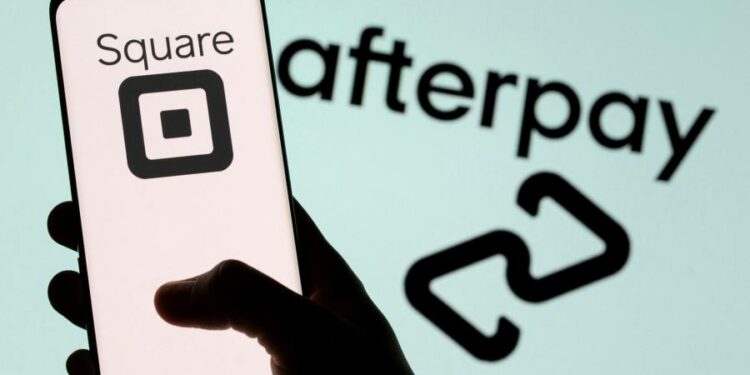The takeover of Aussie Afterpay could almost be seen as a textbook case of the benefits of “buy now, pay later”.
When the Jack Dorsey-led payments company Square announced it was buying Afterpay, a leading provider of BNPL loans, for A$39bn last August it was pitched as the largest ever takeover in Australian history.
But the acquisition was paid for in Square shares. By the time the deal was completed this month, the value of the offer for Afterpay had shrunk to around A$22bn as its new parent’s stock had more than halved since the takeover deal was struck. For Square, which has since changed its name to Block, paying in shares rather than the agreed amount in cash to expand in BNPL has paid off.
Block is now listed on the Australian Stock Exchange, which has emerged as an unlikely hotbed for “buy now, pay later” companies.
The zero-interest micro loans such companies offer have become the next big thing and Afterpay has led the way in the country. The business was listed in 2016 at a modest value of A$165mn but its success has spawned a cottage industry of companies. Zip, Latitude, OpenPay, Douugh and US players Sezzle and Splitit now populate the mining- and bank-heavy ASX.
They are not alone in chasing that deferred buck. PayPal, Sweden’s Klarna, Affirm and Goldman Sachs, alongside Apple, are among those also competing for customers wanting small credit lines to spread payments over time.
Why Australia has become a BNPL hotbed remains open to debate. Most see the foundation of its success in the country’s long history of the “lay-by” system — whereby consumers could pay off big-ticket items in instalments.
Others point to a new digital lay-by generation that is using the A$1,000-A$2,000 interest-free loans to manage their spending. While their parents may have used lay-by to pay for a sofa or car, the younger generation tends to use the service to buy clothes, cosmetics and booze. Terminals to use BNPL have even started appearing in hairdressers, as some people prefer to put off paying for a hair-do until they need a new one.
A more specific factor can be found in Sydney’s affluent eastern suburbs, where Stephanie Schwarz was a teacher at Moriah College. Now retired, she worked for IBM and then taught computing skills to hundreds of students during a career that earned her an Order of Australia gong. Among her pupils were the founders of Afterpay, Zip and Quadpay.
BNPL has been seen as a new booming segment as the leading players have spread across the world to markets including the UK, a market burnt by Wonga’s rise and fall as a digital loan provider.
Growth rates are high. The Reserve Bank of Australia calculates that the value of BNPL transactions grew by 55 per cent in 2019-20 to more than A$9bn and continued to surge during the pandemic as online commerce expanded at the expense of the Aussie high street.
However, those payments, based on available company data compiled by the RBA, were equivalent to less than 2 per cent of the total value of Australian debit and credit card purchases in 2020. For all the buzz, a relatively small share of transactions are made using BNPL, according to the bank, and more than 30 brands are now scrabbling for a share of that modest pie.
The tech sell-off since Square fenced in a deal for Afterpay has also hit the value of most players and led to greater scrutiny. Concerns about high levels of bad debt and low cash flow have started to emerge, while the prospect of higher interest rates has also proved unwelcome.
The results are not pretty. BeforePay, a company that allows users to make payments based on money they will be paid in the future, hoped to defy the negative sentiment when it floated in January but crashed 44 per cent on its debut. Last week, US BNPL company Affirm lost 21 per cent after it accidentally posted its results on Twitter that showed steeper-than-expected losses. The effect was felt across the Pacific Ocean with Block, Zip, Sezzle, OpenPay and Douugh all down around 5 per cent in the subsequent trading session.
With valuations under pressure, it is no surprise that consolidation has quickly reared its head in the wake of Block-Afterpay. In recent weeks, Zip has opened talks with Sezzle over a potential A$2.5bn merger while Latitude has made a A$335m offer for Humm’s credit card and BNPL business. The spate of deals is likely to continue with more companies under pressure to buy rivals out now.
nic.fildes@ft.com











